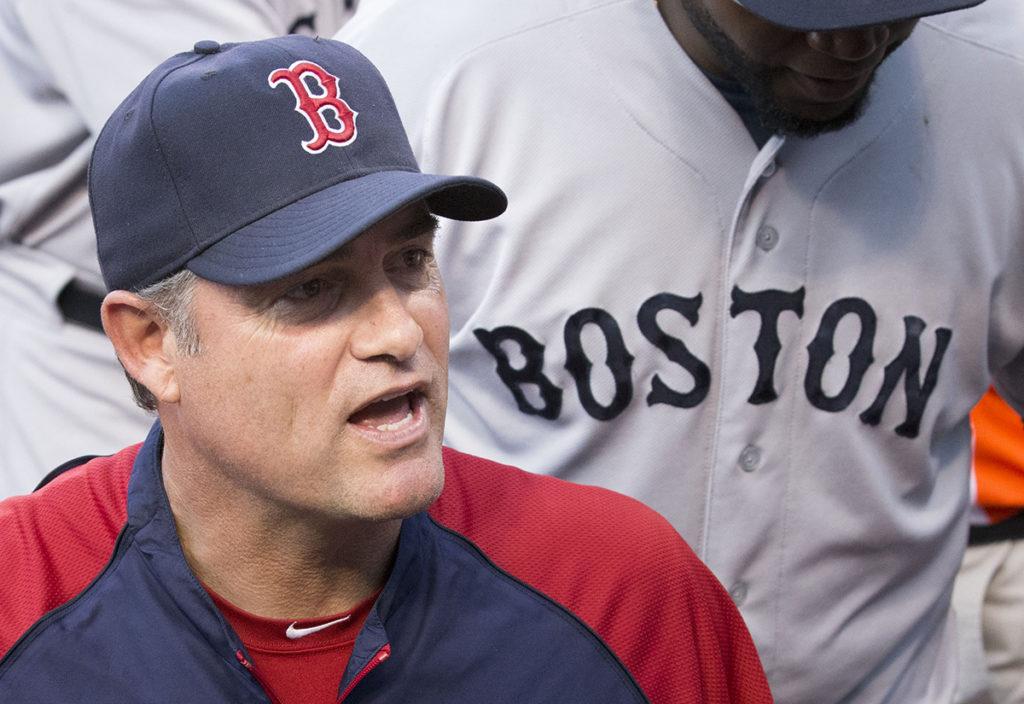One American League manager had three winning seasons in his last five and won a World Series and three division titles during that time. One National League manager had three winning seasons in his last five and has won no playoff series, has no division titles to speak of and is 3-5 in the playoffs during that period.
The former was fired this week. The latter was signed to a contract extension last month.
These two managers are John Farrell and Clint Hurdle, two veterans of the field. Farrell, who was canned by the Boston Red Sox, compiled a resume that would make most big league managers envious. Hurdle, who was given a vote of confidence from his Pirates front office, has re-energized the club in Pittsburgh but hasn’t been able to accomplish anything tangible other than qualifying for the playoffs as a Wild Card.
Baseball’s problem isn’t that these two decisions were made. Baseball’s problem is that they actually made sense, independently.
MLB’s lack of a salary cap has resulted in a wide range of payrolls throughout MLB. This, in turn, has created an environment in which there is a vast spectrum of expectations among MLB’s 30 teams. This isn’t about what they say to the press during spring training — they all claim to be eyeing a division title in March. The behind-closed-doors, real, calculated expectations vary drastically from team to team.
As I wrote in a column in April, some teams are at a distinct advantage thanks to their increased ability to spend money. More money, of course, reels in better players. Better players accrue more wins over a 162 game stretch. You get the picture. I wrote about how the opening day matchup between the Pirates and the Red Sox illustrated MLB’s need for a salary cap. Fast-forward six months, and those two clubs have served up an even more stark example of baseball’s need for change.
For the Red Sox, a team based in one of MLB’s most lucrative media markets, Farrell’s single postseason win in the last four years wasn’t enough, given the resources available to him. Boston’s payroll was the third highest in baseball from 2015 to 2017, and it was the fifth highest in 2014. With that amount of fuel in the tank, the Red Sox brass may have reasoned, a manager should be able to extract more than one playoff win in four years.Clint Hurdle, on the other hand, manages a Pittsburgh club that resides in one of MLB’s smallest media markets. For the Pirates, it’s not a question of whether their pending free agents will depart for bigger paychecks, but how many.
Being toward the back of the league in payroll puts Hurdle in a very tough position to win. From 2014 to 2017, the Pirates’ payroll ranked 28th, 23rd, 25th and 25th respectively. That means when the Pirates approached free agents or attempted to re-sign their own pending free agents, between 22 and 27 teams had more resources available than them to do so.
The fact that Hurdle’s teams managed to even make the playoffs is a fairly remarkable feat. What was seen for Farrell as a bare-minimum check-box was hailed as a triumph and an accomplishment worth celebrating for Hurdle.
MLB needs a salary cap so small-market clubs can stop setting far lower goals than their richer counterparts. As things are now, the Pirates and the Twins of the world gleefully celebrate the clinching of a Wild Card berth with a champagne party in the locker room while the Yankees and Red Sox of the world yawn, knowing they should rightfully expect to go deep into the playoffs every year.
National pundits often blast small-market teams for making a big fuss over accomplishments like merely qualifying for the playoffs. They’ll spew out tweets telling them to save it for when they’ve “actually won something.”
They’ll ask, rhetorically, if a storied team like the Yankees or the Cardinals would be seen doing that. This type of thinking completely ignores the fact that with a variance in resources available to teams comes a variance in expected results and therefore a variance in the threshold for satisfaction and celebration. If a small-market club overcomes the long-odds of being poor and makes the playoffs, they should go crazy.
What we have now is a system of the haves and the have-nots, with the haves knowing they should expect to win the World Series or come close every year, and the have-nots trying to get excited about being mentioned in the same sentence as the phrase “World Series.”
The national sports media (often represented by the folks left at ESPN after their purge of thoughtful reporters) either don’t see this or choose not to talk about it. As the league currently works, the story of an MLB season needs to be put into financial context to be properly told. When playoff series are reported on, the teams’ payrolls should be included front and center, so people know how to interpret the results. Maybe teams should start printing the payroll figures on tickets.
“HOME GAME #34: LOS ANGELES ($265M) VS. MILWAUKEE ($83M),” the tickets could say. Maybe then people would understand that baseball needs to adapt. Until it does, baseball will keep being a story of the little brother making a spirited attempt at a championship and the big brother coolly striding in and using their great advantage in size to brush them aside.
The League Championship round is in full swing, and the four teams remaining are New York, Los Angeles, Chicago and Houston: the four largest media markets in the United States.










